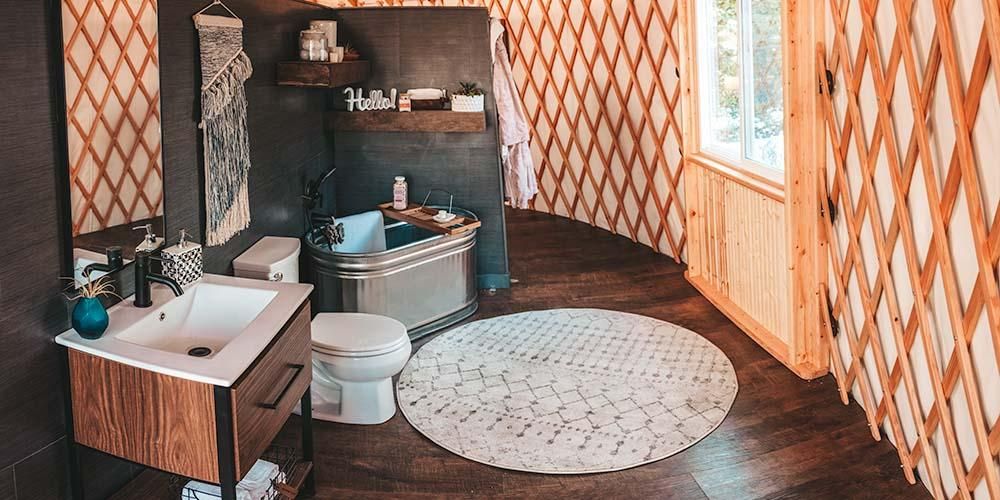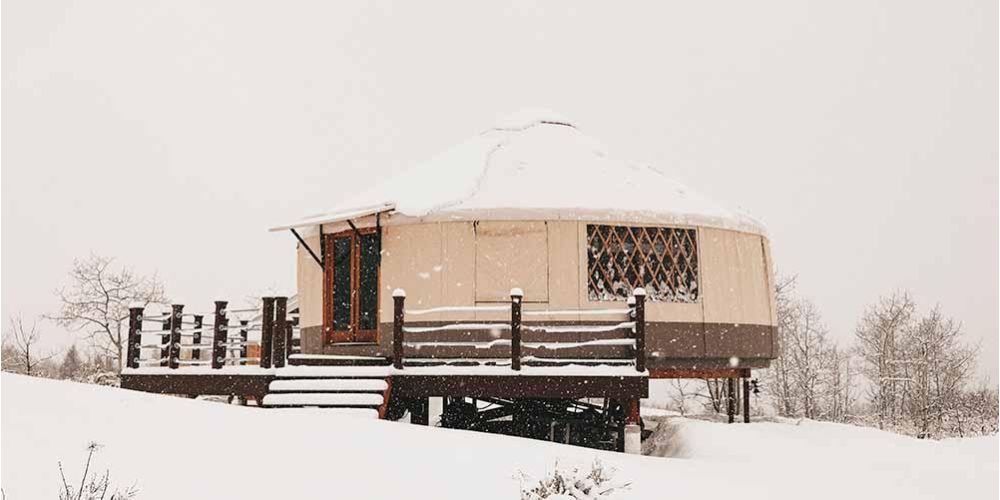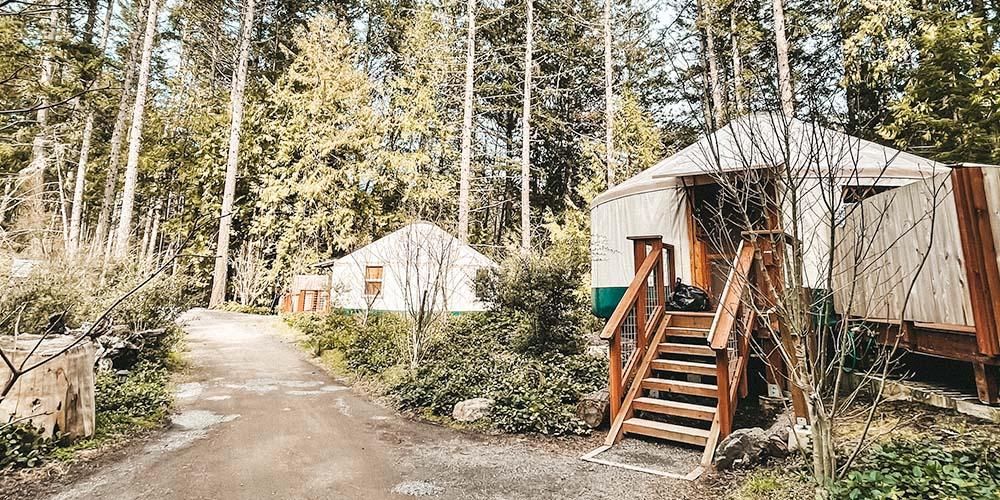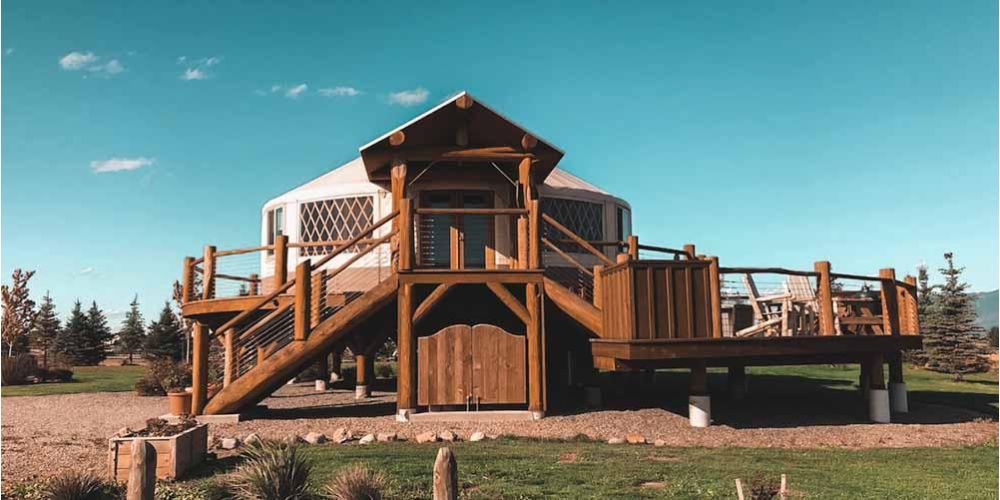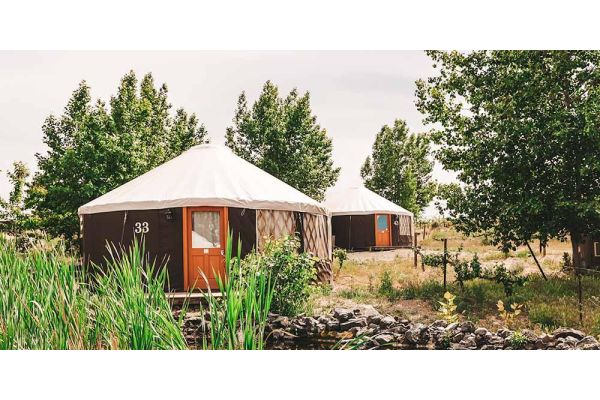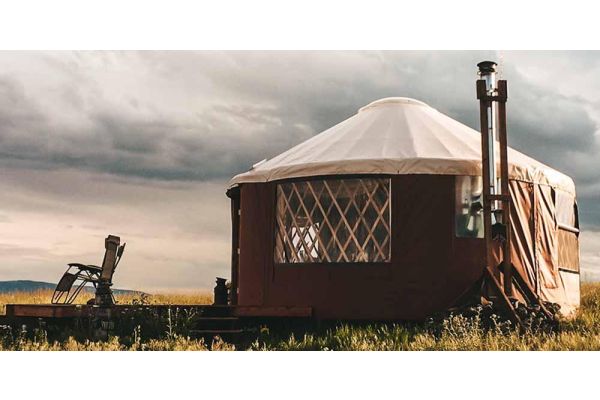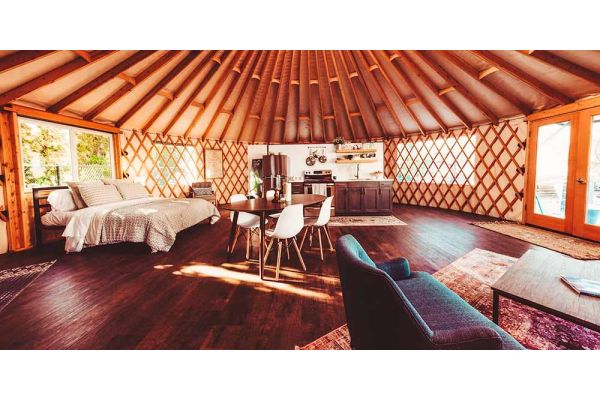Leaving A Small Foot Print
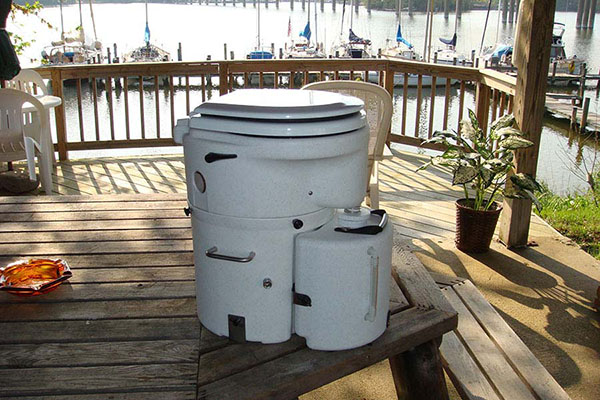

Today's guest post comes from Robert Cimitile, of "Air Head" Composting Toilets. The issue of plumbing a yurt and choosing the bathroom fixtures is a constant question, and I'm seeing more and more yurt dwellers explore composting toilets as an option for their dream yurt.
"Air Heads" is allowing us to put a demo model (for admiring, not for use!) in our yurt showroom. Send me an email to schedule your yurt tour, and you'll be able to see the composting toilet at the same time!
A big question that inevitably comes up when talking about yurts, tiny houses, or boats, is "where will we go to the bathroom?" People have developed numerous ways to solve this issue, including outhouses, standard toilets, septic systems, and everything in between.
Composting toilets are gaining ground in popularity in recent years as a great option for solving the potty problem. We’ve outlined some of the benefits of outfitting your yurt with a composting toilet.
Water Savings in Yurt Bathrooms with Composting Toilets
It is said that 27% of the water used in the home comes from flushing the toilet. Typical household toilets use between 3 and 5 gallons of water with each flush. Based on an average of 5 flushes per day, that’s 6 to 9K gallons of water down the toilet a year! That’s a lot of work for the sewage treatment plant or your septic tank, both of which cost money. There are high-efficiency toilets that significantly reduce the number of gallons used per flush, but no standard toilet can match the efficiency of a waterless composting toilet.
Waterless systems dramatically cut down on wastewater and, therefore, ecological wear and tear. Composting toilets vary in their method of operation to compensate for being waterless. The Air Head diverts liquids and solids automatically into separate compartments. The liquid bottle can be easily detached and emptied. The solids will rapidly break down into compost in their tank, which does not require being emptied until around 60 uses!
Installing Composting Toilets in Yurt Bathrooms Without Plumbing
A waterless toilet system means no plumbing! No pipes, soldering, or mysterious leaks. Installing the Air Head toilet itself requires a drill and a few screws and mounting brackets that we provide. There is also a vent hose with a fan shroud that you’ll install to make sure all toilet odors and gases are pumped outside. You’ll save money on plumbing materials and time with our simple installation. Some of our fans have made numerous videos on how to install an Air Head on boats, RVs, and tiny houses. The same principles apply to your Rainier Yurt.
Installation Videos
Compact Composting Toilets for Small Yurt Bathrooms
You certainly don’t want your toilet taking up lots of space in your yurt. That’s why we designed the "Air Head" to be as compact as possible. Placing the liquid and solid holding tanks underneath the bowl is what allows the toilet to have a small footprint - 18” x 19”.
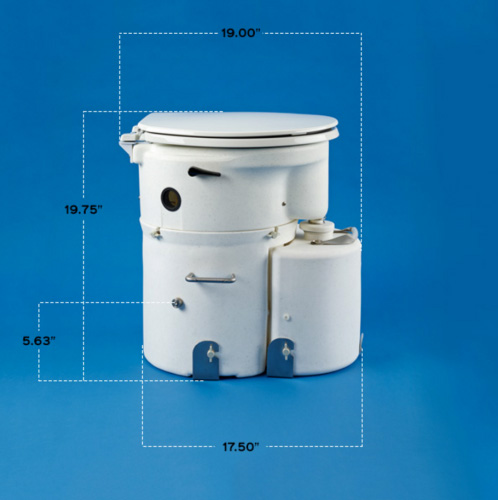

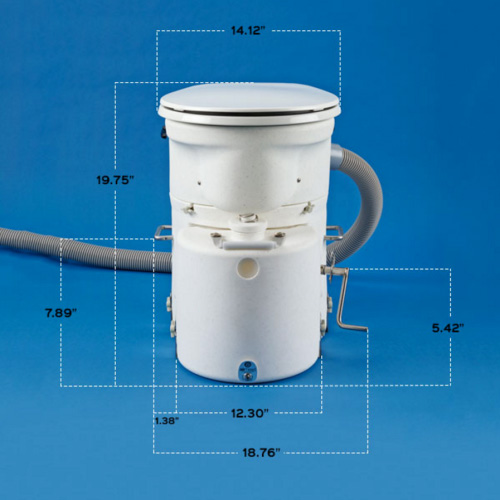

Compost As an End Product
All that solid sewage you would have created with a traditional toilet or outhouse will be converted into compost with the "Air Head." We provide you with a coconut husk brick for use as a composting medium or use other materials such as sawdust, peat moss, or corn-based pet beddings. In any case, the medium goes inside the solids tank and when it mixes with the solids, aerobic bacteria go to work breaking down the material into the soil. A turn of the attached crank handle will rotate the metal agitator inside the solids tank, thus churning the compost, spreading the active bacteria around, and helping break down the solids faster. Once fully composted, much of the harmful bacteria found in human waste is eradicated. The end product is composted soil that has little to no smell.
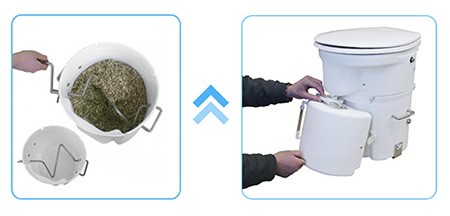

Odor-Free Composting Toilets
Between the fan that funnels gases to the outside, rubber seals located throughout the toilet, and the paper filters that catch and carry solids on their way to the tank, the "Air Head" is virtually odorless. Besides the obvious, cutting down on odors has the added benefit of keeping flies away.
The 12-volt fan we provide is necessary to keep the toilet vapors and odors moving through the vent hose and out of the yurt. If your yurt is off the grid, not to worry. A 5 watt solar panel will provide more than enough power for the fan, and we carry these in our online store.
Easy Disposal
When talking about composting toilets the elephant in the room is, of course, getting rid of the waste. Like many details we’ve discussed, waste disposal can vary greatly from product to product. We put a great deal of thought, time, and energy into making this step as easy and painless as possible.
It goes without saying that the liquids tank will need to be disposed of more frequently than the solids tank. With this in mind, we made an easily removable liquids tank that requires no contact, even visual contact, with the solids. Whew!
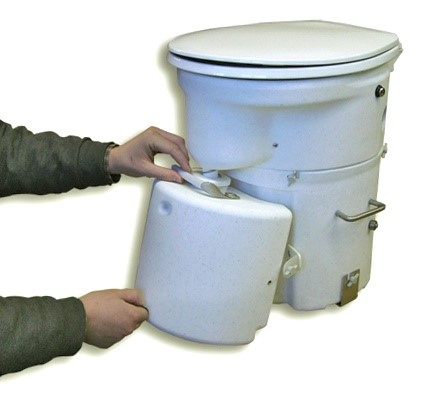

When the solids tank does need to be emptied, simply remove the bowl and attach the nifty cap to the top of the solids tank. No chance of spills on the move!
The compost in the solids tank can be disposed of in a variety of safe and legal methods based on your location and installation. Make sure to check what those are beforehand.
If you’d like to read more about the "Air Head" composting toilet please visit our website. If you’re ready to outfit your Rainier Yurt with an "Air Head," make your online purchase here or give us a call: 740-392-3642.
FAQ
How do composting toilet systems treat sewage more sustainably?
Composting toilets use little to no water, relying on natural decomposition to break down waste into nutrient-rich compost. They reduce sewage, prevent groundwater contamination, and cut reliance on septic or sewer systems, making them an eco-friendly alternative for waste management.
What are the benefits of composting toilets for yurt bathrooms?
Composting toilets are eco-friendly, waterless, and perfect for off-grid living. They reduce water usage and turn waste into usable compost, making them ideal for sustainable setups.
How do composting toilets work in an off-grid yurt bathroom?
Composting toilets break down waste using aerobic decomposition, separating liquids and solids, which are then processed into compost without needing water or electricity.
How to install a composting toilet in a yurt bathroom?
Installation involves connecting the toilet to a vent and composting system, with a stable base and proper ventilation to ensure odor control.
Do yurts have bathrooms?
Yurts can have bathrooms if they are equipped with plumbing or composting toilets. Many glamping yurts include full bathrooms with running water, while off-grid models may use nearby facilities or eco-friendly options like composting toilets.

